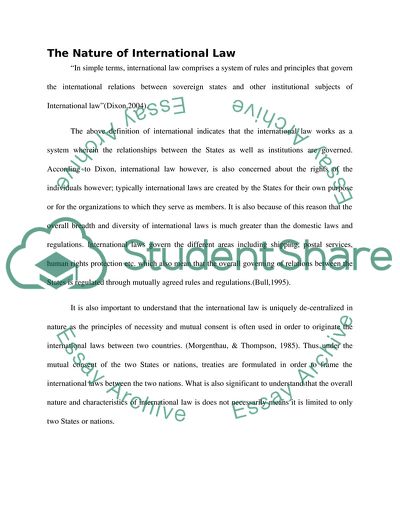Cite this document
(Does the founding of the UN represented a radical departure from the Coursework, n.d.)
Does the founding of the UN represented a radical departure from the Coursework. https://studentshare.org/politics/1736207-does-the-founding-of-the-un-represented-a-radical-departure-from-the-system-of-international-law-andor-international-society-prior-to-1945
Does the founding of the UN represented a radical departure from the Coursework. https://studentshare.org/politics/1736207-does-the-founding-of-the-un-represented-a-radical-departure-from-the-system-of-international-law-andor-international-society-prior-to-1945
(Does the Founding of the UN Represented a Radical Departure from the Coursework)
Does the Founding of the UN Represented a Radical Departure from the Coursework. https://studentshare.org/politics/1736207-does-the-founding-of-the-un-represented-a-radical-departure-from-the-system-of-international-law-andor-international-society-prior-to-1945.
Does the Founding of the UN Represented a Radical Departure from the Coursework. https://studentshare.org/politics/1736207-does-the-founding-of-the-un-represented-a-radical-departure-from-the-system-of-international-law-andor-international-society-prior-to-1945.
“Does the Founding of the UN Represented a Radical Departure from the Coursework”. https://studentshare.org/politics/1736207-does-the-founding-of-the-un-represented-a-radical-departure-from-the-system-of-international-law-andor-international-society-prior-to-1945.


